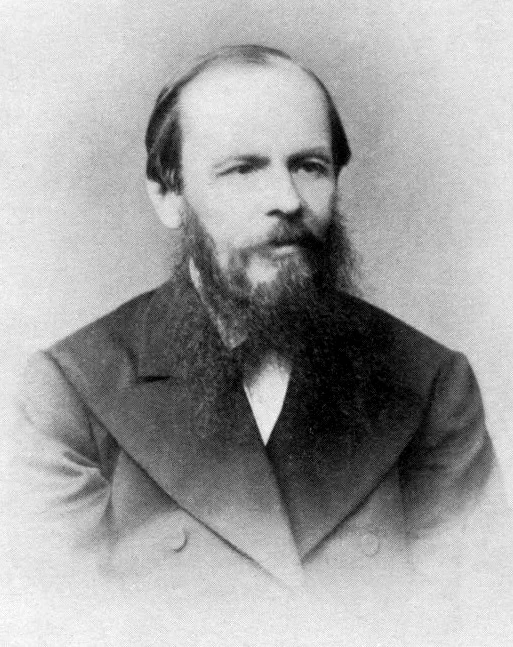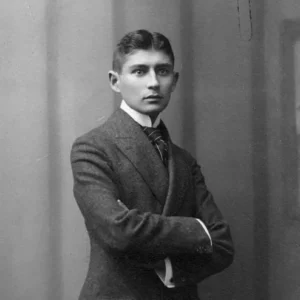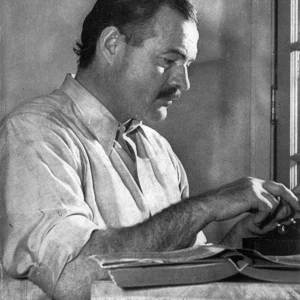Fyodor Mikhailovich Dostoevsky, born on November 11, 1821, in Moscow, Russia, is considered one of the greatest novelists of all time. His works delve into the depths of the human psyche, exploring themes of existentialism, morality, and the complexities of the human condition. Dostoevsky’s profound influence on literature and philosophy continues to resonate with readers and thinkers around the world.
Early Life and Education
Fyodor Dostoevsky was the second of seven children born to Mikhail and Maria Dostoevsky. His father, a doctor at Moscow’s Mariinsky Hospital for the Poor, was a stern and authoritarian figure, while his mother provided a more nurturing presence. The contrasting influences of his parents shaped Dostoevsky’s complex view of human nature.
At the age of 15, Dostoevsky was sent to the Nikolayev Military Engineering Institute in St. Petersburg. Although he disliked the regimented lifestyle and engineering studies, his time at the institute exposed him to a wide range of literature, including the works of Goethe, Schiller, and Shakespeare. These literary influences would later inform his own writing.
Career Beginnings and Early Works
After graduating in 1843, Dostoevsky worked as an engineer for a brief period before deciding to pursue a career in writing. His first novel, “Poor Folk” (1846), was a social commentary on the plight of the poor in St. Petersburg. The novel was well-received by critics, earning him recognition as a promising young writer.
However, Dostoevsky’s early success was short-lived. His second novel, “The Double” (1846), which explored themes of identity and madness, failed to achieve the same acclaim. Undeterred, Dostoevsky continued to write, producing a series of short stories and novellas that reflected his growing interest in the psychological and philosophical dimensions of human existence.
The Petrashevsky Circle and Imprisonment
In the late 1840s, Dostoevsky became involved with a group of intellectuals known as the Petrashevsky Circle. The group discussed radical political and social ideas, including the abolition of serfdom and the promotion of socialism. In 1849, the group was infiltrated by government spies, and Dostoevsky, along with other members, was arrested and sentenced to death.
At the last moment, Dostoevsky’s sentence was commuted to four years of hard labor in a Siberian prison camp, followed by mandatory military service. The experience of facing death and enduring the harsh conditions of prison had a profound impact on Dostoevsky, deepening his religious faith and shaping his views on human suffering and redemption.
Return to Writing and Major Works
Notes from Underground
Upon his release in 1854, Dostoevsky returned to St. Petersburg and resumed his writing career. “Notes from Underground” (1864) marked a significant turning point in his literary development. The novella is a first-person account of an unnamed narrator, referred to as the Underground Man, who grapples with feelings of alienation, resentment, and existential despair.
“Notes from Underground” is considered one of the first existentialist works of literature. It delves into themes of free will, individualism, and the irrational aspects of human behavior. The Underground Man’s bitter and contradictory nature challenges readers to confront the darker aspects of their own psyche.
Crime and Punishment
“Crime and Punishment” (1866) is one of Dostoevsky’s most famous novels. It tells the story of Rodion Raskolnikov, a former student who believes he is destined for greatness and commits a murder to test his theory that certain individuals are above moral law. As Raskolnikov grapples with guilt and paranoia, he is drawn into a psychological and philosophical battle with the tenacious detective, Porfiry Petrovich.
The novel explores themes of guilt, redemption, and the nature of evil. Dostoevsky’s portrayal of Raskolnikov’s internal struggle and eventual path to redemption reflects his own religious beliefs and experiences with suffering.
The Idiot
In “The Idiot” (1869), Dostoevsky presents a Christ-like protagonist, Prince Myshkin, who returns to Russia after spending years in a Swiss sanatorium. Myshkin’s innocence, compassion, and honesty stand in stark contrast to the corruption and cynicism of society. The novel examines themes of innocence, beauty, and the clash between idealism and reality.
“The Idiot” is a profound exploration of the challenges faced by a truly good person in a flawed world. Dostoevsky’s portrayal of Myshkin’s interactions with the other characters reveals the complexities of human nature and the often-destructive forces of pride, jealousy, and greed.
Demons
“Demons” (also known as “The Possessed” or “The Devils”) (1872) is a political and philosophical novel that explores the rise of radical ideologies in Russia. The novel is inspired by the true story of a political murder carried out by a revolutionary group. Dostoevsky uses this framework to critique the nihilistic and destructive tendencies of radicalism.
The novel’s characters, including the charismatic and manipulative Stavrogin, embody various philosophical and political ideas. Through their interactions and conflicts, Dostoevsky examines the moral and spiritual crises facing Russian society.
The Brothers Karamazov
Dostoevsky’s final novel, “The Brothers Karamazov” (1880), is considered his magnum opus. The novel centers on the lives of the three Karamazov brothers—Dmitri, Ivan, and Alexei—and their tumultuous relationship with their father, Fyodor Pavlovich. The novel explores themes of faith, doubt, free will, and the search for meaning.
“The Brothers Karamazov” is a rich tapestry of philosophical and theological ideas, culminating in the famous “Grand Inquisitor” chapter, in which Ivan Karamazov presents a parable about the conflict between freedom and authority. The novel’s exploration of the human condition and the nature of good and evil has cemented its status as one of the greatest works of literature.
Personal Struggles and Triumphs
Dostoevsky’s personal life was marked by turmoil and hardship. He struggled with epilepsy, a condition that influenced his portrayal of characters who experience seizures and altered states of consciousness. His gambling addiction led to financial difficulties and periods of intense stress.
Despite these challenges, Dostoevsky found solace in his faith and his writing. His second marriage to Anna Snitkina, a stenographer who assisted him with his writing, provided him with much-needed stability and support. Anna’s unwavering dedication and financial acumen helped Dostoevsky overcome his debts and continue his literary work.
Impact on Literature and Philosophy
Fyodor Dostoevsky’s impact on literature and philosophy is profound. His exploration of existential themes, psychological depth, and moral dilemmas has influenced countless writers and thinkers, including Friedrich Nietzsche, Jean-Paul Sartre, and Albert Camus. Dostoevsky’s ability to delve into the complexities of the human soul and the nature of suffering has made his works timeless and universally relevant.
Dostoevsky’s novels continue to be studied and celebrated for their intricate plots, rich character development, and philosophical insights. His ability to capture the essence of the human experience in all its contradictions and complexities has solidified his place as a master of existential fiction.
Legacy and Influence
Dostoevsky’s legacy extends far beyond his own time. His works have been translated into numerous languages and adapted into various forms of media, including film, theater, and opera. The Fyodor Dostoevsky Museum in St. Petersburg offers a comprehensive look at his life and work, preserving his legacy for future generations.
Dostoevsky’s influence can be seen in the works of contemporary writers, filmmakers, and artists who continue to grapple with themes of faith, morality, and the human condition. His exploration of the darker aspects of human nature and the search for redemption resonates with readers and audiences, ensuring that his contributions to literature and philosophy remain enduring and impactful.
Conclusion
Fyodor Dostoevsky’s life and work embody the essence of existential fiction. His ability to explore the depths of the human soul, confront the complexities of morality, and grapple with the existential questions of faith and meaning has left an indelible mark on literature and philosophy. From his early beginnings in Moscow to his status as one of the greatest novelists of all time, Dostoevsky’s journey is a testament to the power of storytelling and the exploration of the human condition.
Through his novels, short stories, and personal writings, Dostoevsky invites readers to confront their own beliefs, fears, and desires, offering both a reflection of and a critique on the modern world. His contributions to literature and philosophy continue to be celebrated, ensuring that the legacy of the master of existential fiction will endure for generations to come. Dostoevsky’s exploration of themes such as guilt, redemption, and the search for meaning remains relevant, inspiring and challenging readers to delve into the depths of their own existence.



